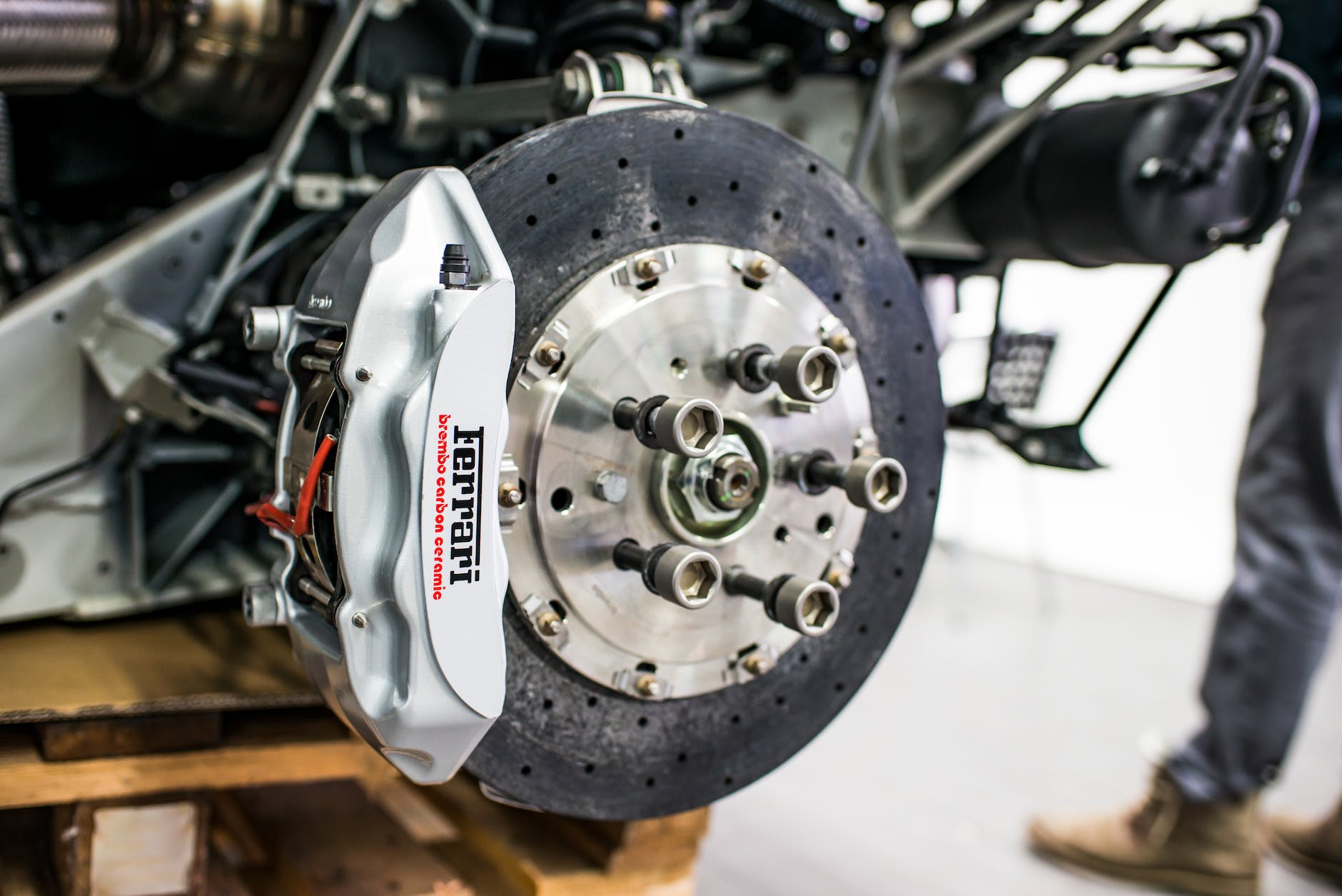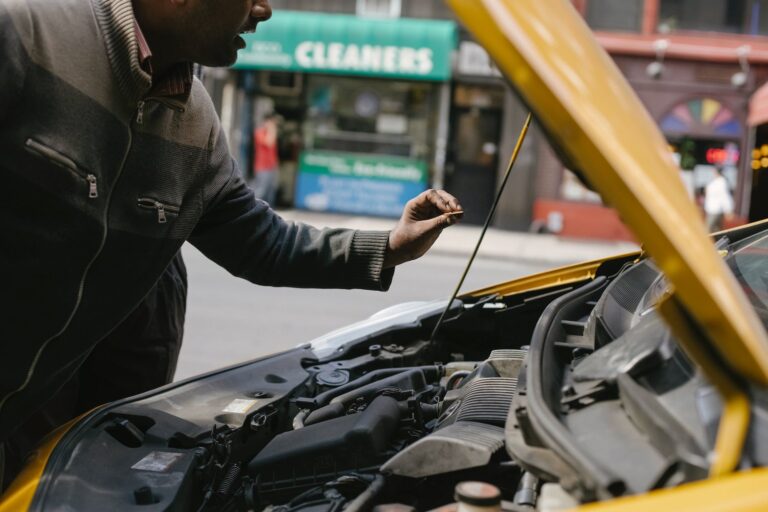Understanding Brake Services
When it comes to car maintenance, one of the most critical areas to focus on is the braking system. Proper brake maintenance is essential for your safety and the safety of others on the road. In this section, we will explore the importance of brake maintenance and discuss common signs of brake problems that should not be ignored.
Importance of Brake Maintenance
Regular brake maintenance is crucial to ensure the effectiveness and safety of your vehicle’s braking system. It helps to prevent potential accidents and costly repairs down the line. According to Midas, it is recommended to have your brakes inspected at least once a year or every 12,000 miles. This regular inspection helps identify any issues and ensures that your brakes are functioning properly.
By keeping up with brake maintenance, you can address minor issues early on before they escalate into major problems. Regular maintenance also helps extend the lifespan of your braking system components, reducing the likelihood of premature wear and tear. Additionally, well-maintained brakes provide better control and responsiveness, allowing you to maneuver your vehicle safely in various driving conditions.
Signs of Brake Problems
It’s essential to be aware of the warning signs that indicate potential brake problems. If you notice any of the following signs, it is crucial to get your brakes inspected and repaired as soon as possible to maintain optimal safety on the road.
-
Squealing or Grinding Noises: Squeaking or grinding noises when you apply the brakes can be an indication of worn brake pads. Ignoring these noises can lead to further damage to the braking system components. Visit our article on brake noise for more information.
-
Soft or Spongy Brake Pedal: If your brake pedal feels soft or spongy when you press it, it could be a sign of air or moisture in the brake lines. This can compromise the performance of your brakes and should be addressed promptly. Learn more about a soft brake pedal in our dedicated article.
-
Vibrations or Pulsations: Vibrations or pulsations felt through the brake pedal or steering wheel when you apply the brakes may indicate warped brake rotors. This can affect the braking performance and should be addressed to maintain optimal safety. Check out our article on vibrating brake pedal for further details.
-
Decreased Braking Performance: If you notice that your vehicle takes longer to come to a complete stop or the braking distance has increased, it may be a sign of worn brake pads or other brake system issues. Prompt action is necessary to ensure your safety on the road. Discover more signs of decreased braking performance in our article on brake service near me.
-
Illuminated Brake Warning Light: If the brake warning light on your dashboard is illuminated, it indicates a potential issue with your braking system. It is crucial to have your brakes inspected to identify and address the problem promptly. Learn more about the brake warning light in our dedicated article on brake warning light.
Regular brake inspections play a crucial role in identifying and addressing brake problems before they become more severe. By staying vigilant and addressing any signs of brake issues promptly, you can maintain the safety and reliability of your vehicle’s braking system.
Choosing a Brake Repair Shop
When it comes to brake repairs, selecting the right brake repair shop is crucial to ensure the safety and reliability of your vehicle. Here are some key factors to consider when making your decision:
Factors to Consider
-
Experience and Expertise: Look for a brake repair shop with experienced technicians who specialize in brake services. A shop with a team of skilled professionals can provide quality repairs and maintenance, giving you peace of mind that your vehicle is in capable hands.
-
Quality Parts: A reputable brake repair shop will use high-quality parts that meet or exceed manufacturer specifications. Quality brake components ensure optimal performance and longevity, allowing you to drive with confidence.
-
Certifications and Licenses: Check if the brake repair shop holds relevant certifications and licenses. These credentials demonstrate their commitment to professionalism and adherence to industry standards.
-
Customer Reviews and Reputation: Read customer reviews and testimonials to gauge the reputation of the brake repair shop. Positive reviews and high ratings indicate customer satisfaction and reliable service. Additionally, ask friends, family, or trusted acquaintances for recommendations based on their personal experiences.
-
Convenient Location and Hours: Consider the location and operating hours of the brake repair shop. Choosing a shop near your home or workplace can save you time and inconvenience. Furthermore, check if the shop’s hours align with your availability to ensure accessibility and convenience.
-
Warranty and Guarantees: Inquire about any warranties or guarantees offered by the brake repair shop. A reputable shop stands behind their work and provides warranties on parts and labor, giving you added protection and assurance.
Reputable Brake Repair Shops
When searching for a reputable brake repair shop, it’s essential to consider customer feedback and satisfaction. One example of a reliable brake repair shop is Dependable Car Care, located in Ventura and Simi Valley. They have received positive reviews, with 98% of customers expressing their willingness to refer the shop to others (Dependable Car Care). For specific contact information, the Ventura brake repair shop can be reached at (805) 659-2957, and the Simi Valley brake repair shop can be reached at (805) 581-9013 (Dependable Car Care).
By considering these factors and choosing a reputable brake repair shop, you can ensure that your vehicle receives top-notch service and that your brakes are in excellent working condition. Regular brake maintenance and repairs are essential for your safety on the road, so don’t hesitate to reach out to a trusted brake repair shop when needed.
Types of Brake Services
When it comes to maintaining the safety and performance of your vehicle’s braking system, there are several types of brake services that a reputable brake repair shop can provide. These services are essential for ensuring the effectiveness of your brakes and preventing potential accidents. Let’s explore some common types of brake services:
Brake Pad Replacement
One of the most common brake services is brake pad replacement. Over time, the brake pads wear down due to friction, and they need to be replaced to maintain optimal braking performance. During this service, the old brake pads are removed, and new ones are installed. It’s important to regularly inspect your brake pads for wear and listen for squealing or screeching noises, as these can be signs that your brake pads are worn and in need of replacement.
Brake Fluid Exchange
Brake fluid plays a crucial role in the braking system, as it transfers the force from the brake pedal to the brake components. Over time, brake fluid can become contaminated or degrade, compromising its effectiveness. A brake fluid exchange involves removing the old fluid and replacing it with fresh, clean fluid. This service helps maintain the proper functioning of the braking system and prevents issues such as brake fluid leaks and a soft brake pedal.
Brake Rotor Resurfacing
The brake rotors, also known as brake discs, are the flat, metal discs that the brake pads clamp onto to create friction and slow down the vehicle. Over time, brake rotors can develop uneven surfaces due to constant contact with the brake pads. During a brake rotor resurfacing, a brake repair shop will remove a thin layer of the rotor’s surface to create a smoother and more even braking surface. This helps improve braking performance and reduces issues such as pulsating or vibrating sensations when braking.
Brake Line Inspection and Repairs
The brake lines in your vehicle are responsible for transmitting brake fluid from the master cylinder to the brake components. Over time, brake lines can develop leaks or become corroded, compromising the integrity of the braking system. During a brake line inspection, a skilled technician will visually inspect the brake lines for any signs of damage, such as rust, cracks, or leaks. If any issues are detected, necessary brake line repairs will be performed to ensure the proper functioning of the brakes.
By regularly scheduling these types of brake services at a reliable brake repair shop, you can ensure the safety and performance of your vehicle’s braking system. Brake pad replacement, brake fluid exchange, brake rotor resurfacing, and brake line inspection and repairs are all integral parts of maintaining your brakes in top condition. Remember to consult with a professional brake mechanic for any specific concerns or questions regarding your brake system.
Frequency of Brake Services
To ensure the safety and reliability of your vehicle, regular brake services are essential. By adhering to a recommended maintenance schedule, you can keep your brakes in optimal condition and prevent potential issues. Let’s explore the recommended maintenance schedule and the benefits of regular brake service.
Recommended Maintenance Schedule
Brake service intervals can vary depending on factors such as driving conditions, vehicle type, and manufacturer recommendations. However, it is generally recommended to have your brakes inspected at least once a year or every 12,000 miles, whichever comes first (Midas). This regular inspection can help identify any signs of wear or damage and ensure that your brakes are functioning correctly.
For a more comprehensive brake service, it is advised to have it performed on your vehicle every 20,000 to 30,000 miles, or every two years, whichever comes first (Professional Auto Repair). This interval allows for a thorough inspection and maintenance of the entire brake system, including brake pads, rotors, brake lines, and fluid.
Keep in mind that these recommendations are general guidelines, and it’s important to consult your vehicle’s owner manual for specific maintenance intervals tailored to your make and model.
Benefits of Regular Brake Service
Regular brake service offers several benefits that contribute to the longevity and effectiveness of your vehicle’s braking system. Here are some advantages of maintaining a consistent brake service schedule:
-
Safety: Regular brake service helps maintain the effectiveness of your brakes, ensuring optimal stopping power and reducing the risk of accidents. By identifying and addressing any potential issues early on, you can prevent brake failure and maintain control of your vehicle.
-
Cost Savings: Addressing brake issues promptly through regular maintenance can prevent more extensive damage and costly repairs in the future. By replacing worn brake pads before they damage other components, you can avoid more expensive repairs like rotor replacement or brake line repairs.
-
Enhanced Performance: A well-maintained braking system provides consistent and reliable performance. Regular brake service helps to optimize brake pedal response, minimize brake noise, and enhance overall braking performance. This ensures a smooth and confident driving experience.
-
Extended Brake Life: By regularly inspecting and maintaining your brakes, you can extend the lifespan of your brake components. For example, replacing brake pads at the recommended intervals (C & S Auto Repair LLC) can prevent damage to the brake rotors and other parts of the system, resulting in longer-lasting brakes.
-
Peace of Mind: Following a regular brake service schedule provides peace of mind, knowing that your vehicle’s braking system is in good condition. This confidence allows you to drive with assurance, knowing that your brakes are well-maintained and reliable.
By adhering to a recommended brake service schedule, you can ensure the safety and longevity of your vehicle’s braking system. Regular inspections, maintenance, and timely replacement of brake components are key to preserving the performance and effectiveness of your brakes. Consult with a reputable brake repair shop near you to schedule your next brake service and keep your vehicle in top shape.
Cost of Brake Repair
When it comes to brake repair, the cost can vary depending on several factors. Understanding these factors can help you gauge the price range for different brake services and make informed decisions about brake repair costs.
Factors Affecting Cost
The cost of brake repair can be influenced by various factors, including:
-
Type of Vehicle: Luxury and performance vehicles generally have higher price tags for brake replacement compared to common commuter vehicles. The complexity of the braking system and the need for specialized parts can contribute to the increased cost (NuBrakes).
-
Brake Pad Material: Brake pads are available in different materials, such as ceramic, semi-metallic, and organic. The price of brake pads can vary significantly, with prices ranging from $20 to $160 depending on the type and brand used (NuBrakes). Higher-quality and performance-oriented brake pads tend to be more expensive.
-
Labor Costs: Labor costs for brake pad replacement can range from $80 to $200 per hour. The amount of time required to complete the brake repair, as well as the expertise of the brake mechanic, can impact the overall cost (NuBrakes).
-
Make and Model: The make and model of a vehicle can affect the cost of brake pad replacement. Luxury and high-performance cars often require more expensive brake pads due to their specific braking system requirements (NuBrakes).
Price Range for Brake Pad Replacement
One common brake service is brake pad replacement, which is necessary to maintain optimal braking performance. The cost of brake pad replacement can range from $130 to $500 per axle, depending on the location and type of vehicle (NuBrakes).
It’s important to note that this price range is a general estimate and can vary based on the factors mentioned earlier. Luxury and performance vehicles tend to fall on the higher end of the price spectrum due to their specialized brake pads and more intricate braking systems.
To get an accurate cost estimate for brake pad replacement or any other brake service, it is recommended to reach out to local brake repair shops for quotes. They can provide you with a detailed breakdown of the cost based on your specific vehicle and its requirements.
By understanding the factors that can influence the cost of brake repair and being aware of the price range for brake pad replacement, you can make informed decisions and budget accordingly. Remember, investing in proper brake maintenance is essential for your safety on the road and the longevity of your vehicle’s braking system.
Signs You Need New Brake Pads
Properly functioning brake pads are crucial for the safety and performance of your vehicle’s braking system. Over time, brake pads wear down and need to be replaced to maintain optimal braking performance. Here are some signs that indicate the need for new brake pads:
Squealing or Screeching Noises
If you hear a high-pitched squealing or screeching noise when you apply the brakes, it is a clear sign that your brake pads are worn and in need of replacement. This noise is caused by a metal indicator on the brake pad, designed to alert you when the pad thickness reaches a minimum level. Continuing to drive with worn brake pads can lead to further damage to the brake system. Visit our article on brake pads replacement for more information.
Pulsating or Vibrating Sensation
Feeling a pulsating or vibrating sensation when you apply the brakes is another indication of worn brake pads or warped rotors. Unevenly worn brake pads can cause the braking force to be inconsistently distributed, leading to vibrations or pulsations felt through the brake pedal. If you experience this, it’s important to have your brake pads inspected and replaced if necessary. Learn more about brake maintenance and troubleshooting in our article on brake repair.
Decreased Braking Performance
A noticeable decrease in braking performance is a clear sign that your brake pads need to be replaced. If it takes longer for your vehicle to come to a complete stop or if you have to apply more pressure to the pedal, it is time to have your brake pads inspected and replaced. Delaying brake pad replacement can compromise your safety on the road. Explore our article on brake replacement for more information.
Built-In Wear Indicator Noise
Brake pads are equipped with a built-in wear indicator that emits a squeaking noise when the pads have worn down to a certain level. If you hear this noise when you apply the brakes, it is a clear sign that your brake pads are nearing the end of their lifespan and need to be replaced soon. Ignoring this warning can lead to more extensive damage to your brake system. For more insights into brake pad wear indicators, visit our article on squeaky brakes.
Checking Brake Pad Thickness
Regularly checking the thickness of your brake pads is an important part of brake maintenance. As a general guideline, brake pads should have a minimum thickness of 3mm. If the pads are thinner than that, it is time to have them replaced. Monitoring brake pad thickness allows you to ensure optimal braking performance and avoid potential safety hazards. Find more information on brake pad maintenance in our article on brake maintenance.
Being aware of these signs can help you identify when it’s time to replace your brake pads. If you notice any of these indicators, it is essential to have your brake system inspected by a professional brake mechanic. Prompt brake pad replacement ensures the safety of you, your passengers, and others on the road. For quality brake services near you, check out our article on brake service near me.
Importance of Brake Inspections
Brake inspections play a vital role in ensuring the safety and performance of your vehicle’s braking system. Regular inspections can help detect any potential issues before they escalate into more extensive damage, providing peace of mind on the road.
Early Problem Detection
One of the main benefits of brake inspections is the early detection of problems. By having your brakes inspected by a qualified technician, you can identify any signs of brake issues, such as squeaking or grinding noises, reduced braking performance, or a soft brake pedal. These warning signs may indicate worn brake pads, brake fluid leaks, or other underlying problems.
Addressing these issues promptly can prevent further damage to the braking system, ensuring that your brakes continue to operate effectively. Ignoring the warning signs and neglecting brake inspections can lead to more severe issues, potentially compromising your safety on the road.
Preventing Extensive Damage
Regular brake inspections are crucial for preventing extensive damage to your vehicle’s braking system. A qualified technician can assess the condition of your brake pads, rotors, calipers, and other brake system components. They can identify any wear and tear, signs of corrosion, or abnormalities that may affect the performance of your brakes.
By addressing these issues early on, you can avoid costly repairs and potentially dangerous situations. For example, worn brake pads can cause damage to the brake rotors, leading to the need for brake rotor replacement. Early detection and maintenance can help preserve the integrity of your braking system, prolonging its lifespan and helping you avoid unexpected brake failures.
To ensure the safety and reliability of your brakes, it is recommended to have your vehicle inspected by a professional brake repair shop. These shops have the expertise, tools, and knowledge to thoroughly examine your braking system, identify any potential issues, and provide necessary repairs or maintenance.
By prioritizing regular brake inspections, you can stay proactive in maintaining the effectiveness and safety of your vehicle’s braking system. Preventative measures can save you from potential accidents, costly repairs, and ensure the optimal performance of your brakes. Remember, your safety and the safety of others on the road depend on the reliability of your braking system, so make brake inspections a regular part of your vehicle maintenance routine.
Additional Brake Maintenance
In addition to the essential brake services such as brake pad replacement and brake fluid exchange, there are other crucial aspects of brake maintenance that car owners should be aware of. Two important components to consider are the inspection and resurfacing of rotors, as well as the availability of professional brake repair services.
Inspection and Resurfacing of Rotors
When it comes to maintaining the effectiveness and safety of your vehicle’s braking system, it is vital to have the rotors inspected and resurfaced if necessary. The rotors play a significant role in the braking process, as they provide the surface for the brake pads to clamp against, creating the necessary friction to slow down or stop the vehicle.
Over time, the rotors can develop wear and tear, including grooves or uneven surfaces. This can affect the overall performance of the brakes, leading to decreased stopping power and potential safety concerns. By having the rotors inspected regularly, any issues can be identified early on and addressed promptly.
If the inspection reveals that the rotors have become warped, excessively worn, or damaged, resurfacing or replacement may be necessary. Resurfacing involves removing a thin layer of metal from the rotor’s surface to restore a smooth and even finish. This process can help eliminate minor imperfections and improve the overall braking performance. However, if the rotors are severely damaged or worn beyond repair, they may need to be replaced.
Professional Brake Repair Services
While some car owners may attempt to perform brake maintenance themselves, it is often recommended to seek the expertise of a professional brake repair shop. A reputable brake repair shop can provide comprehensive brake inspection, maintenance, and repair services to ensure the safety and optimal performance of your vehicle’s braking system.
Professional brake repair services offer several advantages. Firstly, the technicians are trained and experienced in working specifically with brakes, allowing them to accurately diagnose any issues and provide appropriate solutions. They have the knowledge and expertise to handle various brake system components and can perform the necessary repairs or replacements effectively.
Additionally, professional brake repair shops have access to specialized tools and equipment, ensuring that the job is done correctly and efficiently. They are familiar with the specific requirements of different vehicle makes and models, allowing them to provide tailored brake services.
By relying on the expertise of a professional brake repair shop, you can have peace of mind knowing that your vehicle’s braking system is in capable hands. Regular brake inspections, maintenance, and timely repairs can help prevent extensive damage, ensure the longevity of your brakes, and most importantly, keep you and your passengers safe on the road.
Remember to consult the recommendations of trusted professionals, such as C & S Auto Repair LLC and Professional Auto Repair, for more information on the importance of brake inspection, maintenance, and other related services.







